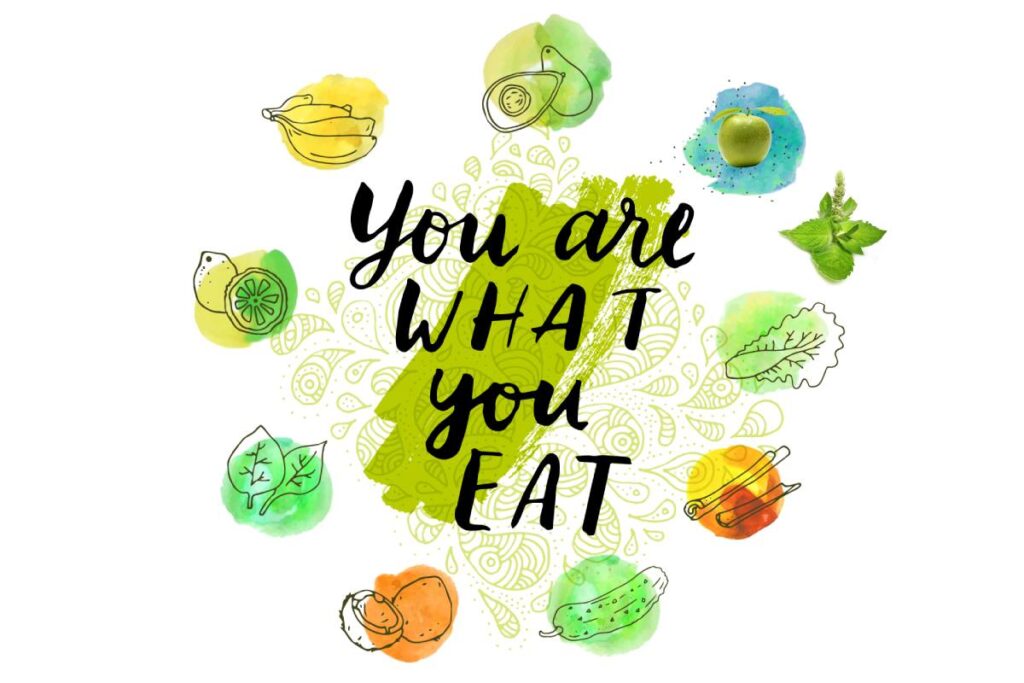
In a world of busy lifestyles and misleading food advertisements, falling into the trap of mindless eating is way too easy. In our daily lives, we often consume our meals while engaged in our devices and hardly take the time to enjoy the taste, texture, and aroma of the food before us.
The habit of mindless eating steals the joy of eating and disturbs our physical and mental well-being.
Therefore, to address this concern, let us delve into the Health Benefits of Mindful Eating. A pearl of ancient wisdom that encourages us to establish a connection with our food and discover health advantages that extend beyond mere satiation of hunger.
What is Mindful Eating?
Mindful eating is a conscious approach to eating that fosters awareness of the entire eating process. This process involves being fully present in the moment and enjoying the flavours, textures, and aromas of the food.
By practising mindfulness with our food, we develop a healthier connection with what we eat.
The Health Benefits of Mindful Eating
Weight Management
Mindful eating helps you develop a conscious approach to portion sizes, which helps prevent overeating and allows your body to process food more effectively. Also, mindfully chewing your food enables you to recognize when you are full.
This conscious approach prevents overeating, promotes a balanced approach to nourishment, and helps with weight management.
Improved Digestion
Digestion begins in the mouth. With mindful eating, you activate the parasympathetic nervous system, which promotes overall relaxation and better digestion. Consciously chewing your food and savouring each bite helps break down the nutrients, making them easier for your body to absorb.
Better Nutrient Absorption
Eating each bite mindfully elevates your natural digestive responses. This enhances proper nutrient absorption, ensuring you get the maximum benefits from the nutrients in your food.
Freedom From Stress and Anxiety
Mindful eating shifts your focus away from daily stress and lets you enjoy the present moment. This practice also encourages mental calmness, making mealtime a moment for deep rejuvenation.
Helps To Make Conscious Food Choices
Mindful eating promotes conscious decision-making when it comes to food choices. With mindful eating, you develop a deeper awareness to choose nourishing food options that benefit your overall health.
Mindful Living
Practising mindfulness while eating can enhance your overall well-being and help you develop self-awareness. Conscious awareness can reflect on other aspects of your life, giving you more control over how you direct your life.
Develops Gratitude
Mindful eating develops a sense of gratitude towards your food, which provides nourishment and becomes part of your body. This feeling of gratitude can reflect itself in other areas of your life, enhancing your overall sense of contentment.

Habits of Mindful Eating
Eat Only When You Are Hungry
If you want to experience the ultimate bliss of a healthy body and mind, you must eat only when you are genuinely hungry. Food consumed without hunger cannot be digested properly, and this undigested food can serve as the root cause of various diseases.
Aligning your meals with your true hunger ensures that you eat an appropriate amount of calories that correspond with your circadian rhythm and the signalling system of your body. This approach naturally heals your body and promotes overall health and well-being.
Pro Tip: To experience true hunger, avoid snacking between meals and maintain the required gap between breakfast, lunch, and dinner. Following this practice will help enhance your awareness of true hunger.
Eat With A Happy Mind
Believe it or not, there is a deep connection between your emotions and food. Avoid anything that causes you stress or anxiety, and avoid watching screens while eating. While eating, you must maintain a calm and happy mental state.
Research suggests that happiness can have a positive impact on your health.
Eating joyfully promotes overall well-being, which in turn helps you develop a better appetite and a stronger immune system, making your body more resilient against bacteria and diseases.
Eating With Your Hands
Eating with your hands is more than just an ancient practice. It is the easiest way to develop a mindful connection with the food you consume. Eating with your hands allows you to touch and feel your food before consuming it. This initial touch naturally signals your brain, digestive system, and other organs to prepare for digestion.
This promotes the release of the required digestive juices and enzymes, facilitating the breakdown of the food you are about to enjoy.
Limit Variety Of Foods
Your stomach is naturally designed to process only one type of food at a time. When you eat a variety of foods in one meal, your stomach gets confused and cannot release so many different types of digestive juices to process all the food at once. This undigested food in your stomach will lead to discomfort and health issues.
By restricting the variety of foods in your meal, you simplify the digestion process. This process facilitates the development of decision-making skills. The consumption of a variety of foods in a single meal can contribute to overeating because your brain receives a continuous stream of novel stimuli, making it harder to gauge when you are truly satisfied.
A more focused diet allows you to achieve a balanced intake of essential vitamins, minerals, and macronutrients.
Chew Your Food Properly
Chewing your food properly might seem like a simple task, but its impact on your health is substantial. Chewing is the first step in the complex process of digestion. Thoroughly chewing your food exposes it to saliva and breaks down food into smaller particles, creating a larger surface area for digestive enzymes to work on.
This process leads to better nutrient absorption, and chewing mindfully grants your body ample time to signal feelings of fullness to your brain. This practice can act as a barrier against overeating and significantly contribute to effective weight management and health improvement.
Avoid Physical Work or Stress Right After Eating
When you avoid physical exertion, anxiety, or stress immediately after a meal, you allow your digestive system to focus on breaking down foods and absorbing nutrients effectively. Engaging in physical activity redirects blood flow away from digestion, potentially causing stomach discomfort and slower nutrient absorption.
After a meal, your stomach needs ample energy and focus to digest food properly. Therefore, if you want optimal health, taking a rest after a meal is a must. You can rest for somewhere between 20 and 40 minutes. Allowing your body to rest after eating can also help stabilize blood sugar levels and build a stronger mind-body connection.
Conclusion
Mindful eating allows us to transform the way we approach food and nourishment. Incorporating mindful eating into your daily routine can have a profound impact on your health and overall well-being.
Being fully aware while eating your meals can improve digestion, optimize nutrient absorption, and manage weight. Ultimately, this leads to better health and a balanced life.
FAQ
Q. What are the benefits of eating slowly and mindfully?
Ans: These are the benefits of eating slowly and mindfully:
1. Weight Management.
2. Improved Digestion.
3. Better Nutrient Absorption.
4. Freedom From Stress and Anxiety.
5. Helps to Make Conscious Food Choices.
6. Mindful Living.
7. Develops Gratitude.
Q. What are some mindful eating habits?
Ans: Here are some of the mindful eating habits:
1. Eat only when you are hungry.
2. Eat with a happy mind.
3. Eat with your hands.
4. Limit the variety of foods.
5. Chew your Food properly.
6. Avoid physical work or stress right after eating.
Q. What happens when you don’t eat mindfully?
Ans: Not Eating mindfully redirects blood flow away from digestion, ruining our circadian clock and potentially causing stomach discomfort and slower nutrient absorption. It may also disrupt our physical and mental well-being.
Q. What is the very first step towards mindful eating?
Ans: Being Aware of what and how you are eating is the first step towards mindful eating.
Q. Why is eating slowly good for weight loss?
Ans: Eating slowly enables you to recognize when you are full, preventing overeating, fostering a balanced approach to nourishment, and helping in weight loss.
Q. How do I train myself to eat slowly?
Ans: Incorporating the habit of being aware of what and how you eat and consciously chewing your foods will help you develop the habit of eating slowly.

